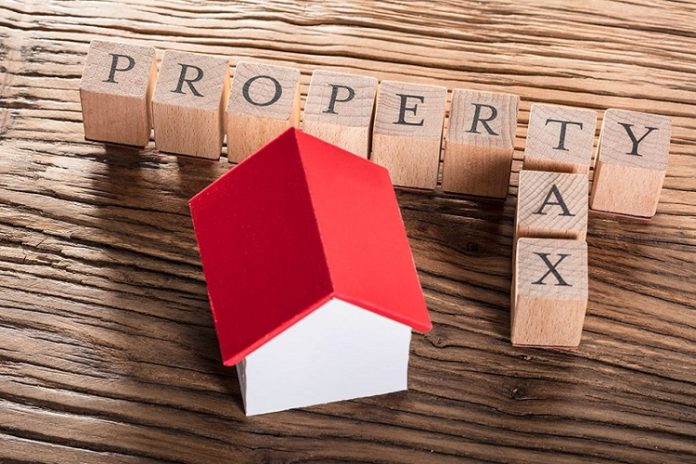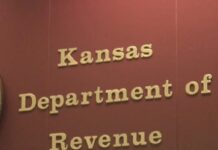(Updated to include comments from Tyson, Doll, Holland)
The Kansas Senate on Thursday took another shot at passing a bill requiring more public disclosure when local governments collect extra tax dollars from rising property values.
The Senate voted 34-1 to pass a bill patterned after laws in Utah and Tennessee requiring local governments to hold hearings and vote to accept extra revenues coming from increased property values even if the tax rate remained steady.
“We’re just saying, ‘Let’s just be transparent,'” said Republican Sen. Caryn Tyson, chair of the tax committee and chief sponsor of the legislation.
“I love Kansas. I love Kansans. I feel like they’re very reasonable people. We want roads, bridges. We want good schools. We know that takes tax dollars.
“So let’s just be transparent with them and tell them why the increase is coming. I think we’re reasonable people and we understand at times there are increases needed.”
Democratic Gov. Laura Kelly vetoed the legislation last year because she believed it placed more administrative burdens on local governments when local officials should be focused on addressing the threats and challenges of COVID-19 in their communities.
The Republican-dominated Legislature, however, may have the votes to override another veto from the governor after it expanded its supermajority in the House and maintained its supermajority in the Senate.
Under the legislation, the property tax rate for local governments would be adjusted to bring in the same amount of revenue as it did the year before. A vote and hearing would be required to take in more money.
Local governments – not counting school districts – would be required to publish notice of their intent to take in extra revenues that either come from a tax increase or from a so-called windfall that could come with increased property values.
County clerks would be required to notify every taxpayer of the hearing with a notice that showed, among other things, the tax rate and amount of property tax paid to each local government.
Local governments failing to comply with the procedures would be required to refund any excess property taxes.
Republican Sen. John Doll of Garden City cast the lone vote against the bill.
He predicted that the legislation passed by the Senate would wind up being as controversial as the property tax lid that would be scrapped by this bill.
“The tax lid did not age well. This will not age well,” Doll said.
“Every time we put try to put a mandate on local and county government, it always seems to come back and bite us,” he said.
“Maybe it’s because county and local governments know what they’re doing.”
Other features of the bill included:
- Prohibiting an increase in the appraised value of property solely as a result of repairs or maintenance of existing structures.
- Authorizing county treasurers to accept partial payments and establish payment plans for all property taxes. Current law allows treasurers to accept partial payments for delinquent property taxes.
The legislation also eliminates the controversial property tax lid that the Legislature imposed in 2015 and started in 2017.
The lid generally required voters to approve city and county property tax increases higher than inflation from the previous year.
Supporters and opponents of the tax lid agreed that it was not the best way for holding down property taxes and keeping the public informed.
Supporters believed the lid was ineffective because it has too many exemptions that are used to recategorize spending so it wouldn’t be covered by the cap.
Opponents believed the lid imposed a burden on local governments at a time when state financial support was uncertain.
Democratic state Sen. Tom Holland said the bill was improved since it first started earlier this year, most notably exempting the schools from the reporting requirement.
“We have a very workable bill here,” the Baldwin City Democrat said. “This has been totally vetted. I do think this is good legislation.”
















